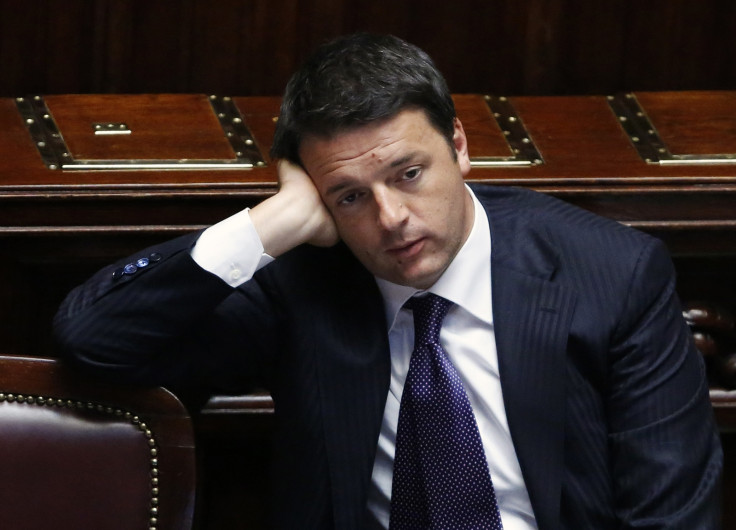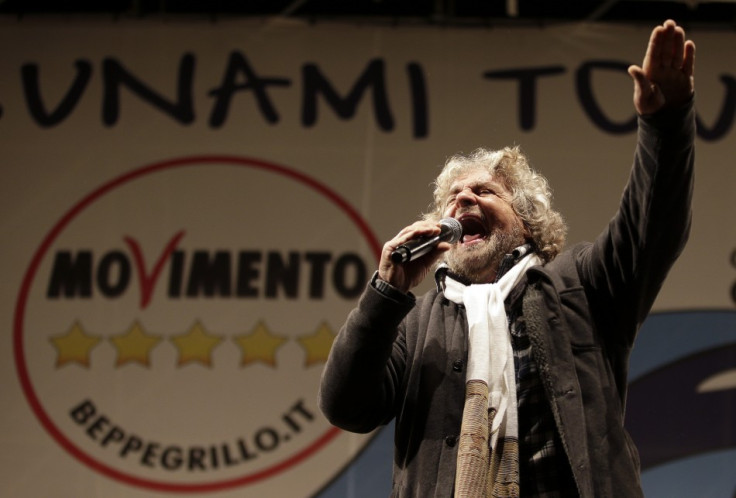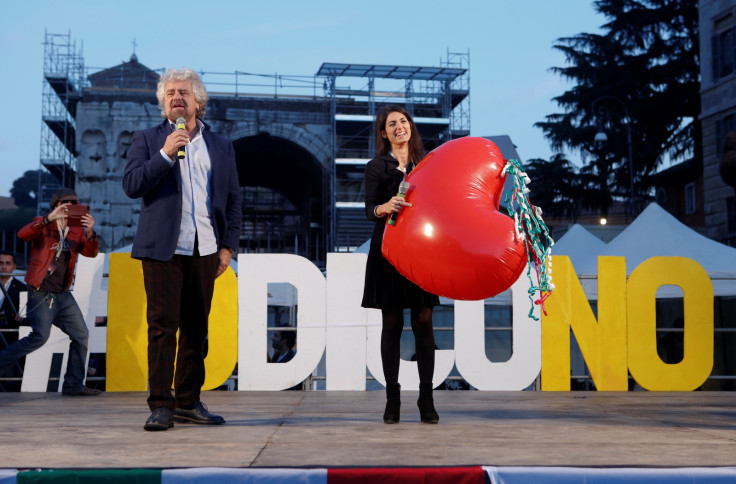What will happen in Italy after the referendum?
Italy's political future will be decided at the polls this Sunday.
Italians headed to the polling stations on Sunday (4 December 2016) to end months of speculation over the results of the constitutional referendum, the fate of Italian Prime Minister Matteo Renzi, and financial market stability. The atmosphere in the country is tense as a bruising electoral campaign has created a profound divide between the camps supporting the Yes and No side of the ballot paper.
"Not even in the Berlusconi era you had so much hostility and even lack of respect," said Sofia Ventura, a political expert and associate professor at the University of Bologna.
A referendum that was supposed to be about making radical changes to the Italian constitution, reforming the parliamentary system and regional government powers, has become a battleground for Renzi, who has gambled his political future on the vote.
What would Renzi do?
The question of what he would do in case of a defeat at the ballots is as pressing as ever as financial markets took note of his words and expect a political crisis to follow a victory for the 'No' vote. But few expect Renzi to disappear from the political scene if he is defeated.
According to the president of the Eurispes Research Institute, Gian Maria Fara, Renzi would claim victory in either case. "If the 'Yes' votes wins, it's a triumph for him. If the 'No' vote wins, he will use the voting percentage he gathered as a way to show the amount of support he can win on his own," he told IBTimes UK.
Ventura agreed with this analysis: "Renzi invested all of himself in politics, for him it's an existential question. He will find a way to retain his position. He may end up addressing the nation and he will explain that for Italy's sake, for the economy's and stability's sake, he needs to stay in power."

He may still offer his resignations to the president of the republic. "If he didn't, he would be drowned by criticisms," said Vincenzo Emanuele, researcher at the centre for electoral studies, CISE. "But this does not exclude a second government because he could give his resignations to the president of the republic, who may give him a new mandate to make a new government to pass the electoral reform and move on to the ballots," he added.
Renzi has been adamant in recent weeks that, whatever happens in the referendum, a general election would only take place in 2018 as scheduled. Italian President Sergio Mattarella may also refuse to accept his resignation, as there is currently no political front in Italy that could secure a majority in parliament.
This is also why a vote of no confidence from the parliament against the government is unlikely. "This is not a possibility that was discussed in the campaign. Everyone is waiting for the next election because no one would gain out of accelerating a crisis," Ventura told IBTimes UK.
How Renzi got himself into a corner
In January 2016, when the polls were strongly in favour of a victory for the 'Yes' vote, he said in an interview with the daily newspaper Repubblica that he would quit politics should the 'No' vote win because he wanted to show he'd "take responsibility" for the outcome. This line was repeated in several interviews throughout the following months, until the summer, when the Democratic Party lost power in some key cities in the administrative election.
By mid-July, Renzi had realised the mistake he made in "personalising" the referendum, putting his government's future on the line, and started deflecting questions over his possible resignation, saying the referendum was not about the government, but simply about the reform. In an interview with CNBC in August, he replied to the question of his resignation in case of defeat with: " I will win."
In the campaign, Renzi faced opposition from numerous fronts: from the Five Star Movement (M5S), Italy's biggest opposition party, from the Northern League's far-right leader Matteo Salvini, from Silvio Berlusconi's centre-right Forza Italia, and from even Renzi's own Democratic Party (PD), where a minority of traditionally left-wing politicians have long been opposed to the prime minister's political centrism.
"Renzi is on his own" said Vincenzo Emanuele, researcher at the centre for electoral studies CISE. "The objective of the minority of the PD is to overthrow Renzi from the leadership as to retake control of the party at the next congress in 2017. There is an attempt to sabotage him that has a political reason, not one related to the reform," he told IBTimes UK.
How Italians would vote
As the campaign focused on questions over Renzi's political future, debates over the actual merit of the constitutions were rare, meaning that a large portion of Italian voters do not actually know the text of the reform they would be voting upon.
According to polls conducted by the CISE in mid-November, while voting intentions gave the 'No' vote a lead, voters polled expressed support for the contents of the reform when these were presented to them. "There is an asymmetry," Emanuele said, "In many ways the reform is appreciated in its content, but many voters do not know it and many will end up voting according to their support for the government."
In this respect, the support is more or less splits according to the geographic lines of north and south. "The 'yes' vote leads in the centre-north, but is lags behind in the south," Emanuele said. In the south of Italy, which has been more heavily affected by the economic crisis, there is a stronger mistrust of the government.
"The southern voters tend to be more critical of all governments, and Renzi's government does not invert the trend. There are also more unemployed people in the south, and in our analysis we see that unemployed are by far the category that votes against the reform" Emanuele explained.

The key factor in the referendum result would be voters' turnout, which experts think will be low, and in particular the geographical distribution of the turnout. According to Emanuele, around 1.5 million of the four million Italians residing abroad will vote in the referendum, and they are expected to vote overwhelmingly in favour of the reform.
With more than a third of Italians still undecided at the time the last polls were published in mid-November (the Italian law forbids the release of new polls before a certain date ahead of a vote), experts agreed that anything can happen and this last week of campaigning was crucial in mobilising voters.
The vote of the so-called 'silent majority' that pollsters in the UK and in the US failed to capture when predicting the result of the Brexit referendum and of the American elections, is also difficult to untangle in Italy. According to Emanuele, Italy's silent majority has historically sided with the Christian Democrats, then with Silvio Berlusconi's Forza Italia, and then again with the Democratic Party, as shown in the party's landslide victory in the 2014 Election. "They may go vote in favour of the reform, worried about uncertainty and the possibility of a Five Star Movement victory," he said.
But according to Ventura, the question is more complex than that, as in the case of the Italian referendum the "least conformist", the "anti-establishment vote", is difficult to discern. "Renzi's rhetoric has been very anti-political, anti-establishment, especially in the referendum. His main arguments are: 'We'll send the politicians home', 'We'll cut politics' cost'," she said, adding that the truly anti-establishment protest vote is gathered by the Five Star Movement, so Renzi's strategy may have limited traction.

What is clear among all the uncertainty is that, should Italians vote for the changes to the constitutions and Renzi's political gamble pay off, he would be able to dramatically strengthen his position both in government and within his party. "A victory would put an end to the anti-Renzian minority, with an exit of important politicians from the party," said Ventura.
But those who think that a victory for the Yes vote would crush the populist Five Star Movement should be cautious. Ventura explained: "The party currently has very good probabilities to win the next election. A No vote victory would increase that probability, and a Yes one may delay it, but the Five Star Movement gathers a protest vote, an anti-political vote, and they are certainly the most threatening rival to the Democratic Party."
© Copyright IBTimes 2025. All rights reserved.






















